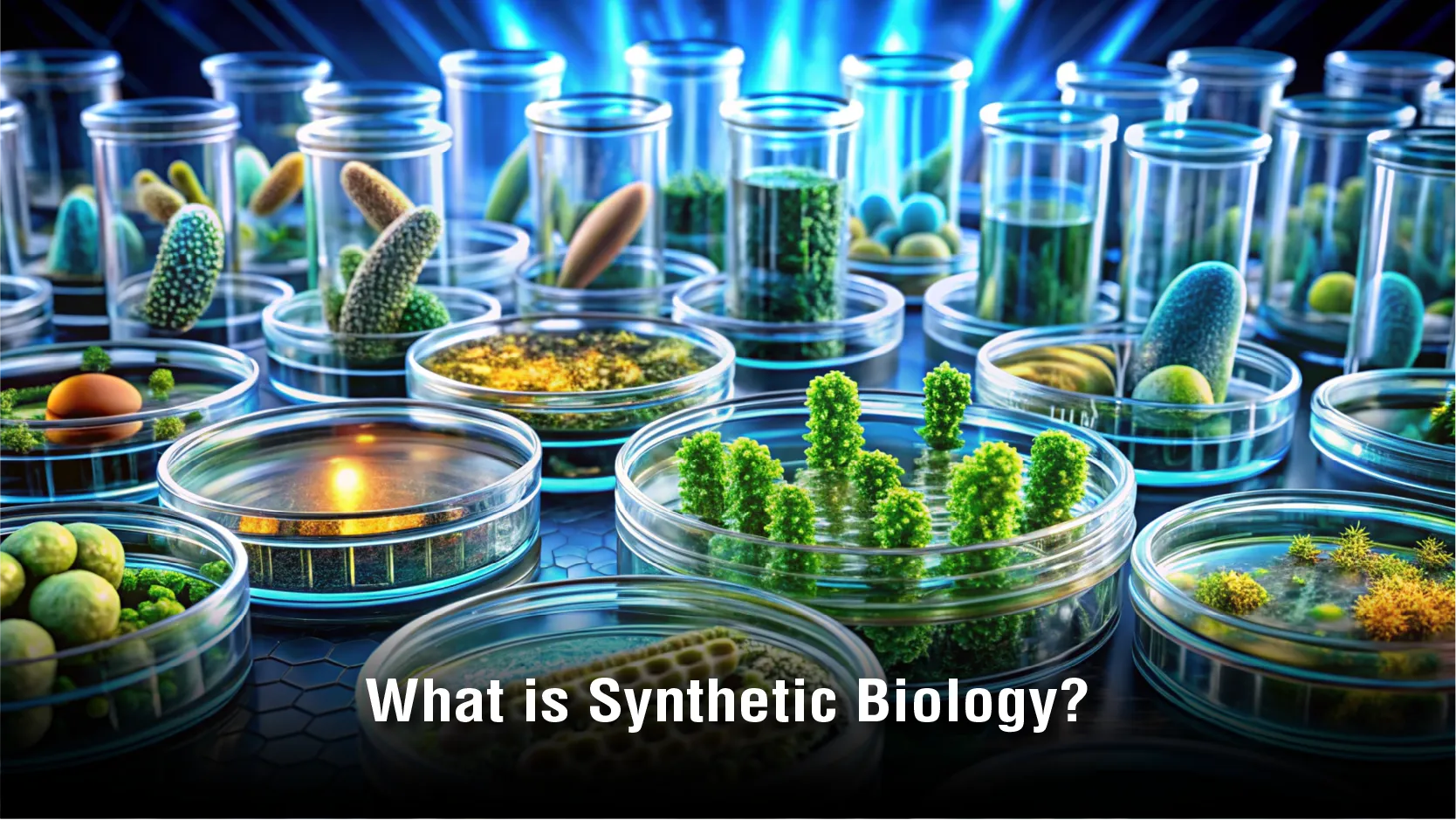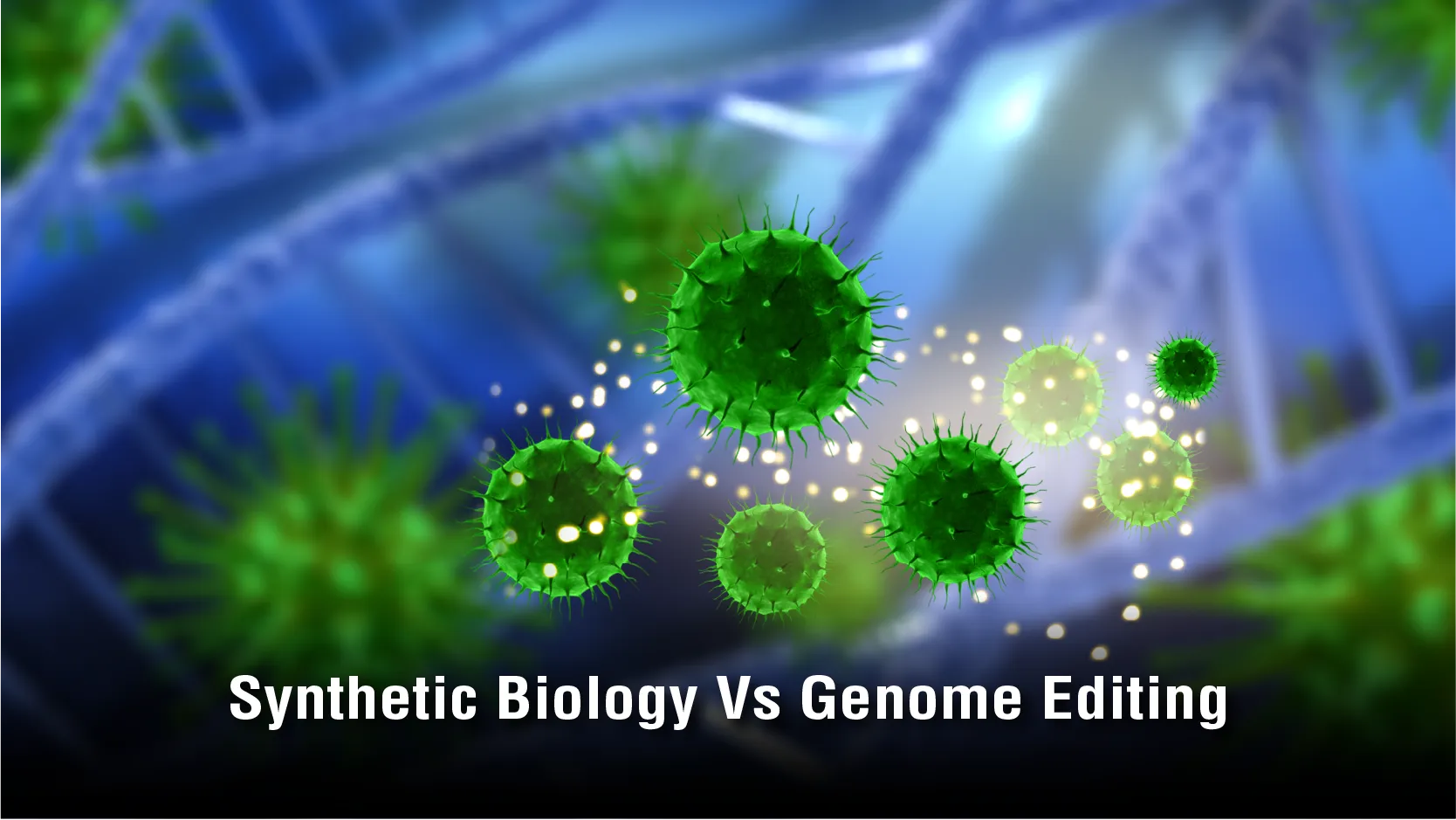Synthetic biology finds applications across various industries, including energy, agriculture, and biofuels. Synthetic biology involves breaking down and reassembling biological cells and processes to create new systems that perform specific functions. At its core, designs are encoded in DNA, which leads to the creation of bio parts; these bio parts are then assembled into devices, and the devices are integrated into biological systems.
The entire Design–Build–Test–Learn cycle relies heavily on computational tools, from mathematical modeling to the use of robotics for automating assembly and experimentation. By applying engineering principles like standardization, modularity, and abstraction, synthetic biology allows for rapid prototyping and seamless sharing of designs among researchers worldwide. This widespread use often raises concerns about the possibility of components being released into the natural environment.
In this blog, we will have a look at the definition of synthetic biology, its capabilities, and its examples.
What is Synthetic Biology?

The field of science that encompasses remodeling organisms for useful purposes by re-engineering them to have new capabilities is referred to as synthetic biology. Researchers and organizations in the field globally are leveraging the potential of nature to overcome challenges in medicine, agriculture, and manufacturing.
Before we deep dive into more capabilities of synthetic biology, let us have a look at the distinction between synthetic biology and genome editing.
Synthetic Biology Vs Genome Editing

In a few ways, synthetic biology is quite similar to a technique referred to as genome editing. The main reason for the similarity is that it includes modification of an organism’s genetic code. However, a few researchers make distinctions between these two strategies depending on how the modifications are made.
Scientists usually stitch long stretches of DNA and put them into a particular organism’s genome in synthetic biology. Such synthesized DNA pieces can be seen in other organisms or they can be completely novel.
Scientists usually leverage tools to make small modifications to the organism’s own DNA in genome editing. In order to delete or add small DNA stretches in the genome; genome editing tools can be utilized.
What are the Capabilities of Synthetic Biology?
The goal of synthetic biology programs is to redesign organisms to create substances like fuel or medicine. It also has the potential to develop a new capability in organisms such as sensing something in the ecosystem.
Also Read: Benefits, Challenges, and Definition of Bioenergy
What is an example of synthetic biology?
Below are a few examples of what scientists are creating with synthetic biology:
1. Synthetic Biology Products for Medical Applications
The application of synthetic biology can be seen in the medical industry. They range from vaccine development to gene therapies, and pharmaceutical drugs.
Codon deoptimization is a synthetic biology strategy used to develop the Novartis H1N1 vaccine. It is an approach to weakening a live virus. RNA-based and DNA-based vaccines are the key synthetic biology vaccine products. RNA vaccines became popular with Covid-19 mRNA vaccines. The medical industry is using a chemical called Sitagliptin to treat type II diabetes. The application of synthetic biology products will constantly expand the options available for medical treatments.
2. Synthetic Biology Products in the Food Industry
Developing new food products, enhancing the manufacturing process of current food products, and enriching the nutritional value of existing products are a few applications of synthetic biology.
Modifications are made to rice to develop beta-carotene. It is a nutrient that is generally associated with carrots and prevents deficiency of vitamin A. The deficiency of vitamin A results in blindness in children and poses a significant risk of infectious diseases to the children.
The plant-based meat alternative is an instance of developing a new food product produced leveraging synthetic biology applications. There are various companies in the market that have developed plant-based meat alternatives that are made from modified organisms. These modified organisms give the taste, and texture and are a great source of protein in meat alternatives.
There are wide applications of synthetic biology in the food industry. This sector can do engineering to produce enzymes or metabolites.
3. Synthetic Biology Products in Industry
The application of synthetic biology in various industries will allow us to create a more sustainable future. For instance, scientists can use this technique to replicate chemicals that were procured from rare plants or petroleum products. This approach is effective in allocating scarce resources effectively to avoid depletion. Rubber plants produce an enzyme that transforms phosphate into isoprene.
However, there are not sufficient rubber plantations to satisfy the high demand for isoprene. Dupont used synthetic biology to develop a strategy to imitate the isoprene enzyme, generating Biolsoprene, that enables better rubber production.
Also, yeast is engineered to generate rose oil as an environmentally friendly and sustainable alternative to real roses that perfume companies utilize to manufacture premium scents. Additionally, The bioremediation process uses microorganisms to clean pollutants from air, soil, and water. Creating biofuels is one of the key applications of synthetic biology. Usually, it is done by modifying the microbe’s metabolism to convert plant waste into fuel.
One example is the modification of a common yeast, Pichia pastoris, which can now transform renewable carbon sources into fuel. Given that many chemicals used in industrial processes come from natural origins, synthetic biology has significant potential to address challenges related to scarcity and sustainability.
Synthetic Biology in a Nutshell
Synthetic biology has diverse applications, from transforming healthcare through improved diagnostics and more effective treatments to enhancing environmental sustainability. It offers innovative approaches for pollution cleanup, creating eco-friendly industrial processes for chemical synthesis, and developing fertilizers that reduce the need for harmful farming practices. The potential of synthetic biology to reshape our lives and safeguard the planet’s future is immense.




